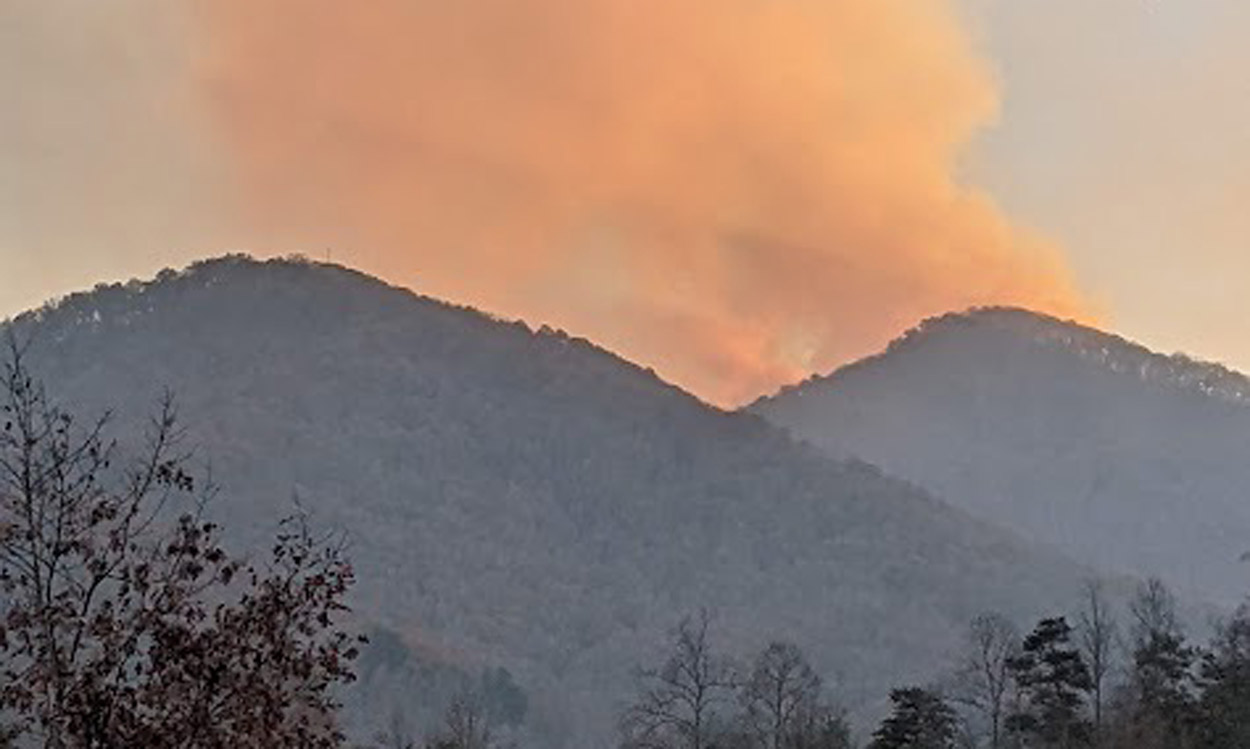Despite rain, drought conditions remain for WNC

The East Fork Fire as seen from the Health and Human Sciences Building on the evening of Nov. 6, 2023.
By Julia Duvall
While the rain these past few days did a number on fires here in Western North Carolina, drought conditions remain.
“According to the North Carolina Forest Service’s Fire Response dashboard, the Collett Ridge Fire in Cherokee County near Andrews has grown to over 5,000 acres,” said Sara Duncan, assistant professor in WCU’s Environmental Health Program. “Thankfully, the East Fork Fire, closest to Western Carolina University’s campus community has been contained at just over 300 acres.”
In addition to the direct impact of the wildfire on the landscape, last week, many Western North Carolinians experienced elevated levels of fine particulate air pollution, called PM2.5.
“While decreased visibility is a notable impact, high levels of PM2.5 can lead to asthma exacerbation, reduced lung function and cardiovascular effects such as heart attacks,” Duncan said. “Western has its own air quality network that you can find at air.wcu.edu. This network consists of low-cost PurpleAir sensors that can be used to measure hyper-local air quality. On Tuesday, Nov. 7, the Air Quality Index or AQI, reached into the red or ‘unhealthy’ category meaning that everyone breathing outdoor air may experience negative health effects.”
During periods of poor air quality from wildfire smoke, consider limiting time outdoors, especially if you are susceptible to air pollution due to asthma or other respiratory and even cardiovascular illness. Also, athletes and those who exercise outdoors should consider the impacts of intense outdoor physical activity on their short and long-term health.
“While the air quality forecast reported by the NC Division of Air Quality looks promising for this week, we certainly aren’t out of the woods given that the Collett Ridge Fire continues to blaze and new fires could drop up,” Duncan said. “The resources presented above will hopefully help to keep you, your family and the campus community safe this wildfire season.”

